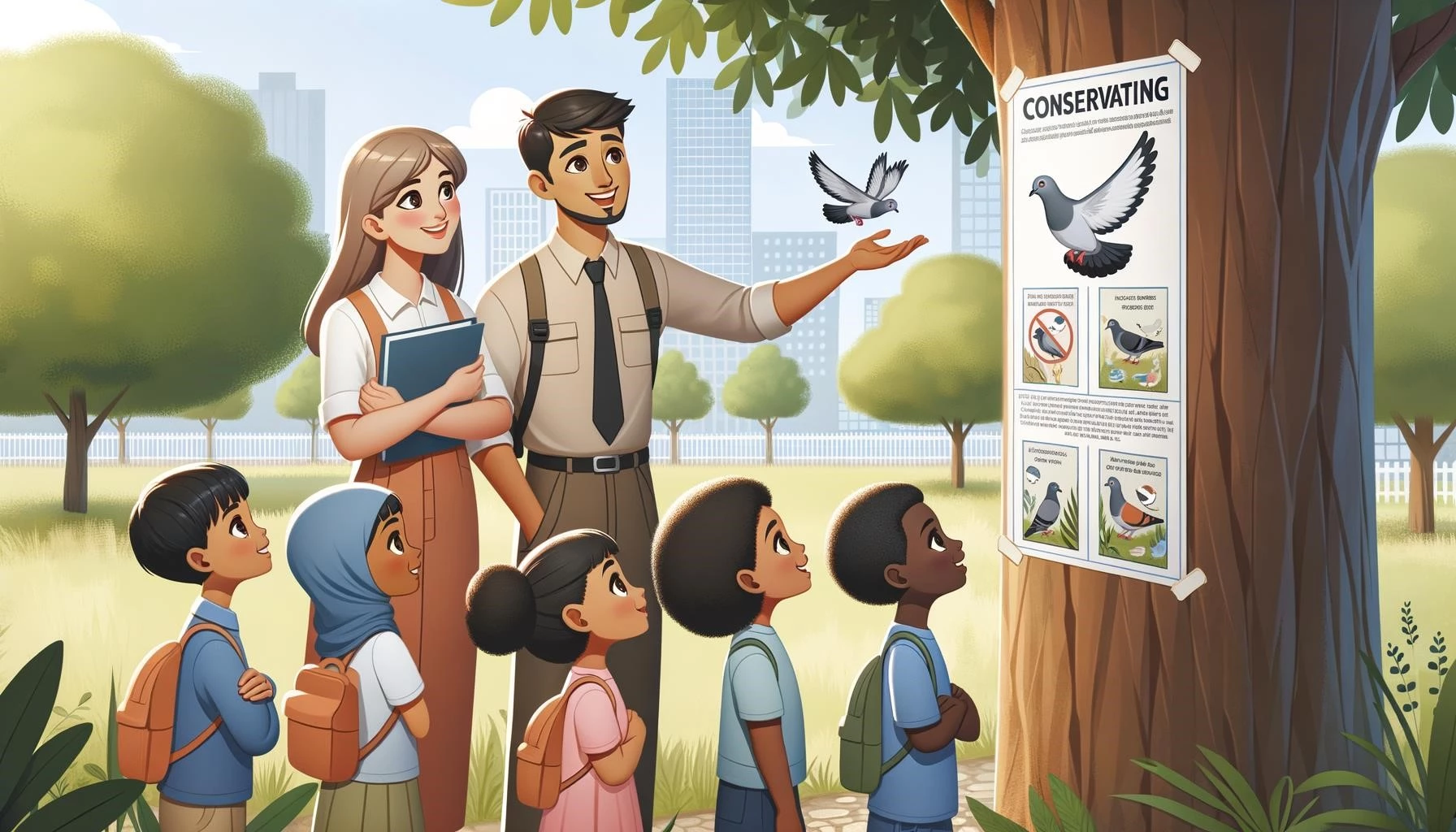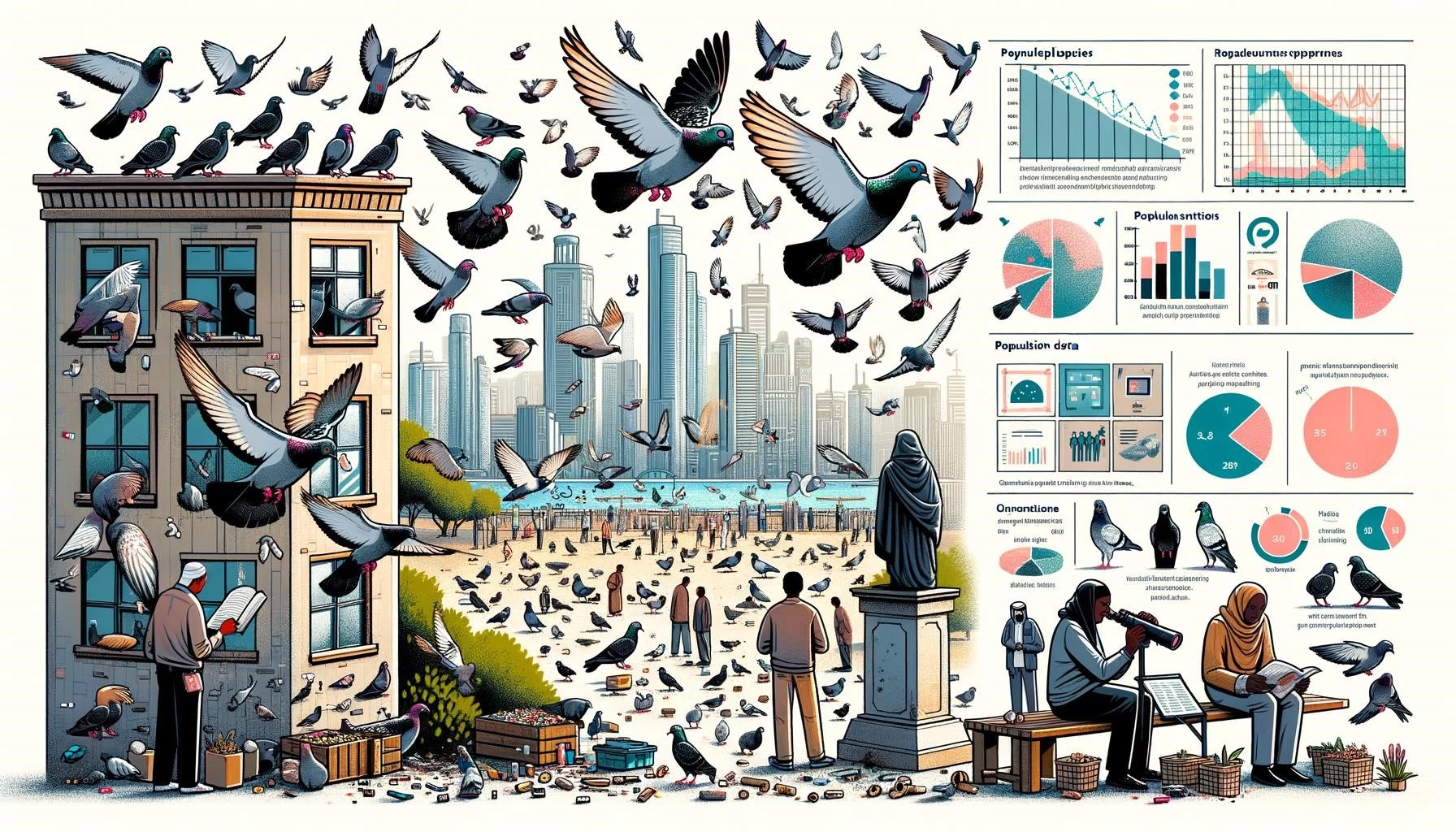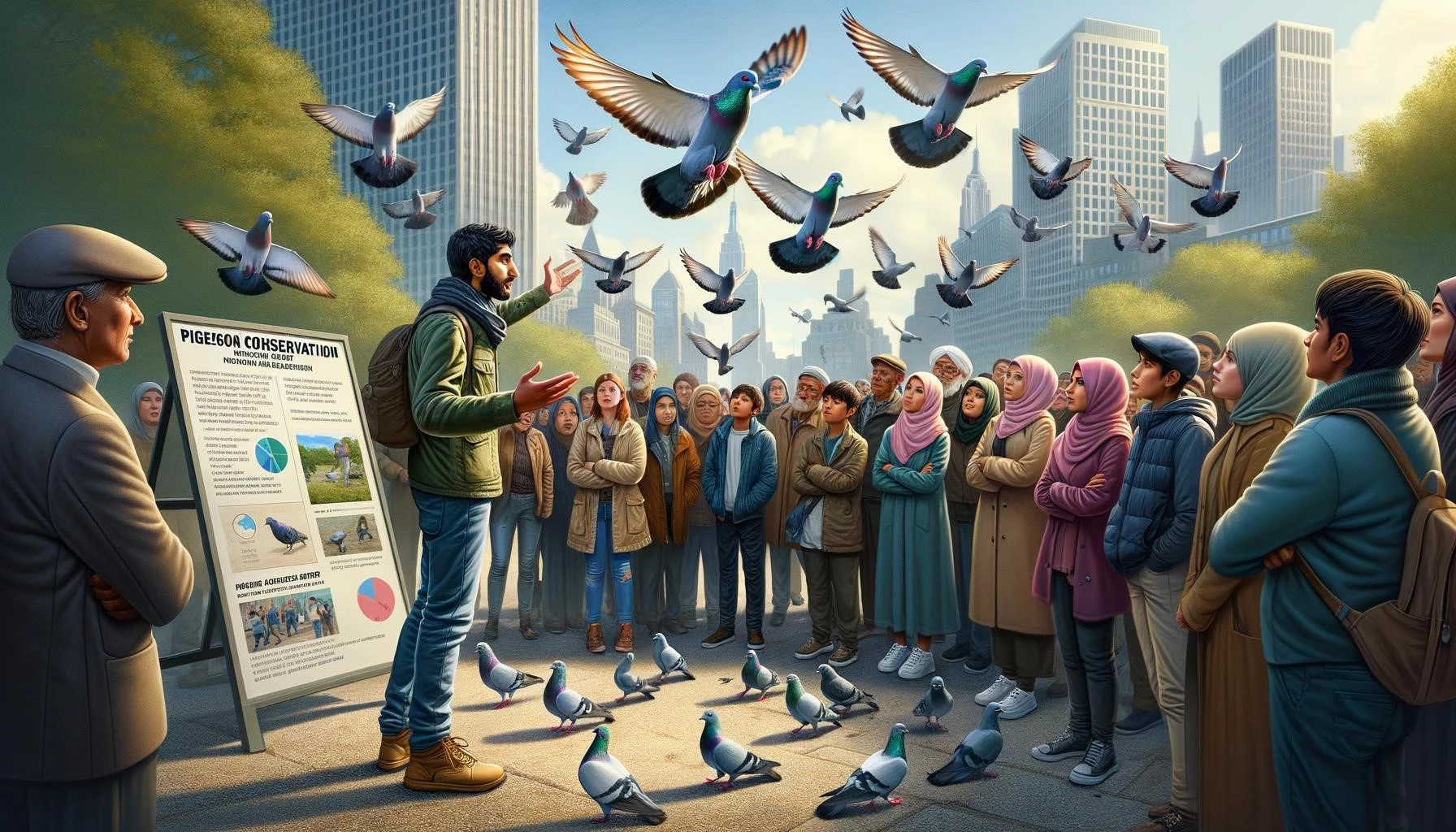Pigeons are a common sight in urban areas around the world. However, many people may not be aware of the importance of conserving these birds and the role they play in our ecosystems. Education on pigeon conservation is crucial in raising awareness about the significance of protecting these birds and their habitats.
Key Takeaways
- Educating individuals about pigeon conservation is important for creating awareness about the ecological role of pigeons and the need to protect their habitats.
- By engaging students in educational activities and providing resources, such as documentaries, books, and curriculum, we can promote an understanding of pigeon conservation and raise a new generation of environmental stewards.
- Pigeons face threats such as habitat loss, pollution, and hunting, and educating the public about these challenges can help foster a sense of responsibility towards their conservation.
Pigeons may be commonly seen as urban pests or nuisances, but they play an important role in our ecosystems. Education on pigeon conservation is crucial in dispelling misconceptions and promoting a better understanding of these birds’ significance.
By educating the public about the ecological role of pigeons, we can raise awareness about their importance as seed dispersers and pollinators. Pigeons consume fruits and seeds, which pass through their digestive system and are deposited elsewhere, aiding in plant reproduction and maintaining biodiversity.
Pigeons also serve as indicators of environmental quality. Changes in pigeon populations can reflect changes in urban environments, including air pollution, contamination, and habitat loss. By monitoring pigeon populations and studying their behaviors, we can gain insights into the health of our cities and take action to improve environmental conditions.
Educational Resources for Pigeon Conservation
There are several educational resources available to promote pigeon conservation and raise awareness about their importance. These resources include documentaries, books, curriculum, and single-lesson activities for students at different grade levels.
Documentaries such as ″Billions to None″ and books like ″Feathered River in the Sky: The Passenger Pigeon’s Flight to Extinction″ provide valuable insights into the history, conservation, and impact of pigeons. These resources can be used in classrooms or community events to educate and engage students and the public.
Curriculum materials, including single-lesson activities and comprehensive five-lesson curricula, can help teachers introduce students to pigeon conservation. These activities can cover topics such as species protection, habitat preservation, and the historical extinction of the passenger pigeon. By incorporating these materials into the curriculum, students can develop a deeper understanding of the need for conservation and their role in protecting these birds and their habitats.
Challenges and Threats to Pigeon Conservation
Pigeons face various threats and challenges that impact their populations and habitats. One of the primary challenges is habitat loss due to urbanization. As cities expand, natural habitats are destroyed or fragmented, leaving pigeons with fewer places to nest and forage for food.
Pollution is another significant threat to pigeon populations. Urban areas are often plagued by air and water contamination, which can lead to respiratory and digestive health issues for pigeons. Pollution can also impact the availability of clean water and food sources for pigeons, further exacerbating their challenges.
Hunting is an additional threat that pigeons face. While hunting pigeons is mostly illegal, certain regions still practice it, leading to significant declines in pigeon populations. Education on the importance of protecting pigeons can help change attitudes and reduce illegal hunting practices.
By raising awareness about these challenges and the need for conservation, education efforts can encourage individuals to take action and contribute to protecting pigeons and their habitats.
In conclusion, education on pigeon conservation is crucial in promoting understanding and awareness about the ecological role of pigeons and the need to protect their habitats. By providing educational resources, engaging students, and addressing the challenges faced by pigeons, we can contribute to their conservation and ensure their presence in our urban environments for generations to come.









